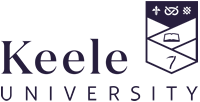Dr S R Amith
No more applications being accepted
Funded PhD Project (European/UK Students Only)
About the Project
Though triple-negative breast cancer (TNBC) affects only 15% of breast cancer patients, its associated mortality rate is disproportionately high. This is due to a variety of factors including: lack of targeted therapies, development of resistance to cytotoxic chemotherapy, and treatment strategies complicated by intra-tumour heterogeneity. An important physiological determinant of chemotherapy resistance is the acid pH of the tumour microenvironment (TME) which facilitates metastasis, the leading cause of patient death. We have previously demonstrated a role for the pH regulatory protein, the Na+/H+ exchanger NHE1 in TNBC metastasis [reviewed in 1, 2]. When NHE1 is knocked out or inhibited in triple-negative MDA-MB-231 breast cancer cells, rates of migration, invasion, and colony growth, which are indicative of metastatic potential, are decreased [3, 4]. Additionally, treatment of MDA-MB-231 cells with NHE1 inhibitors increases their susceptibility to cytotoxic chemotherapy [3]. In this project, the student will investigate the anti-cancer effects of newer, more potent and selective NHE1 inhibitors, which must also be validated in multiple breast cancer subtypes. You will develop and optimise the culture of 3-dimensional spheroids of breast cancer cells in vitro, under conditions that mimic tumour growth in vivo, and use this model system to test the effects of NHE1 inhibitors. You will also investigate the underlying signal networks involved in NHE1 activation and function in breast cancer cells [5], and examine differences in cell signals under conditions of pharmacological inhibition of NHE1. The goal of this project is to determine whether NHE1 is a viable new target in the treatment of triple-negative breast cancer.
Funding Notes
Funding support is provided as follows;
100% UK/EU tuition fees for 3 years commencing January 2018. Stipend support for three years at Research Council rates (2017/8 stipend £14,553 per annum). Funding for consumables and conference attendance is available.
Please quote FNS GS 2017-19 on your application.
References
References:
1. Amith SR and Fliegel L. (2017) Hydrogen ion extrusion as carcinogenic signal in triple-negative breast cancer etiopathogenesis and Na+/H+ exchanger NHE1 inhibition in its therapeutics. Seminars in Cancer Biology. 43: 35-41.
2. Amith SR and Fliegel L. (2013) Regulation of the Na+/H+ exchanger (NHE1) in breast cancer metastasis. Cancer Research 73(4): 1259-1264.
3. Amith SR, Wilkinson JM, Baksh S, and Fliegel L. (2015) The Na+/H+ exchanger (NHE1) as a novel co-adjuvant target in paclitaxel therapy of triple-negative breast cancer cells. Oncotarget. 6(2): 1262-1275.
4. Amith SR, Wilkinson JM, and Fliegel L. (2016) KR33028, a potent inhibitor of Na+/H+ exchanger NHE1, suppresses metastatic potential of triple-negative breast cancer cells. Biochemical Pharmacology. 118: 31-39.
5. Amith SR, Vincent KM, Wilkinson JM, Postovit LM, and Fliegel L. (2017) Defining the Na+/H+ exchanger NHE1 interactome in breast cancer. Cellular Signalling. 29: 69-77.

 Continue with Facebook
Continue with Facebook

